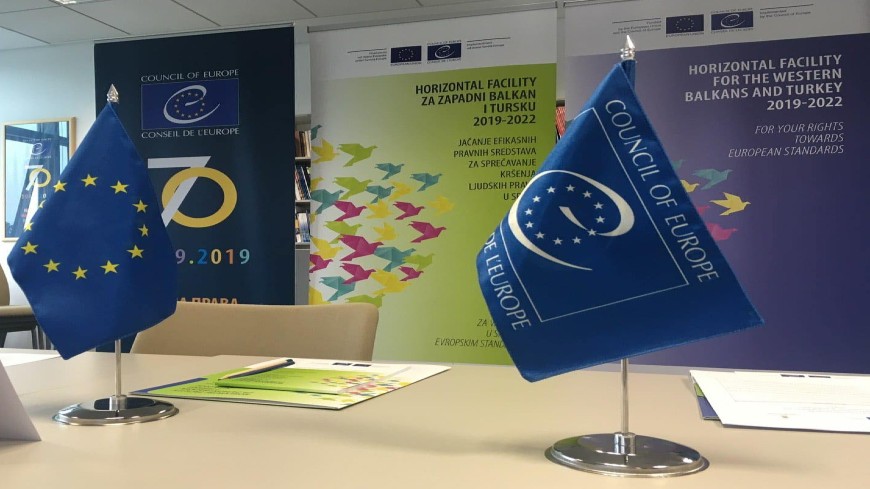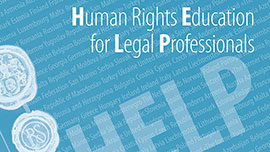The first training-of-trainers (ToT) on HELP methodology, with focus on the course of the European Programme on Human Rights Educations for Legal Professionals (HELP) Admissibility criteria in applications submitted to the European Court of Human Rights, was organised online on 24-26 June for legal professionals in civil society organisations in Serbia.
The event was organised in co-operation with the Government office for co-operation with civil society organisation of Serbia and brought together 16 representatives of nine civil society organisations who are active in promoting and protecting human rights and rule of law.
In his introductory remarks Zarko Stepanovic, Director of the Office for Co-operation with civil society of Government of Serbia, thanked the Council of Europe for the excellent co-operation established during the ToT and expressed his satisfaction with its continuation within various Horizontal Facility actions.
Eva Pastrana, Head of the HELP Unit, underlined that during the COVID-19 crisis, the number of participants enrolled in the HELP courses as well as demands from national training institutions for more national adaptation of HELP courses has significantly increased. For months, the HELP platform was an important tool enabling human rights training for judiciary to continue even during this sanitary crisis.
Tobias Flessenkemper, Head of Council of Europe Office in Belgrade, reminded participants of the 70th anniversary of the European Convention of Human Rights. The convention system, instituted in a dire and difficult moment for Europe, after the Second World War, remains immensely important during yet another unprecedented crisis which reshaped public, professional and personal space and would continue to have a profound impact on the lives of people and European continent in the future.
Tatiana Termacic, Head of Co-ordination and International Co-operation Division, pointed out the crucial role that civil society organisations (CSO) play in the implementation of the European Convention on Human Rights at national level, before the European Court of Human Rights, and then, after, in the execution process, before the Committee of Ministers. She added that CSOs contribute to the protection and promotion of human rights, but they can themselves be victims of human rights violations. This is why the Council of Europe has put in place mechanisms to protect CSOs, and more particularly human rights defenders.
The aim of the ToT was two-fold: to introduce legal professionals to the HELP methodology and expand scope of HELP online courses to informal human rights education programs conducted by CSOs, and to increase capacity of civil society organisations in strategic litigation before national courts and European Court of Human Rights (the European Court).
In an intensive three-day course, participants were introduced to the HELP methodology, the role of HELP tutors and the HELP e-learning tools. Presentations by two European Court lawyers were complemented by dynamic discussions which enabled participants to learn more on admissibility criteria in applications submitted to the European Court of Human Rights, most notably incompatibility, non-exhaustion of domestic remedies 6-month rule and manifestly ill-founded applications.
The ToT was organised within the Action “Strengthening the effective legal remedies to human rights violations in Serbia” and “HELP in the Western Balkans”, implemented under the joint European Union and Council of Europe programme “Horizontal Facility for the Western Balkans and Turkey 2019-2020”.





